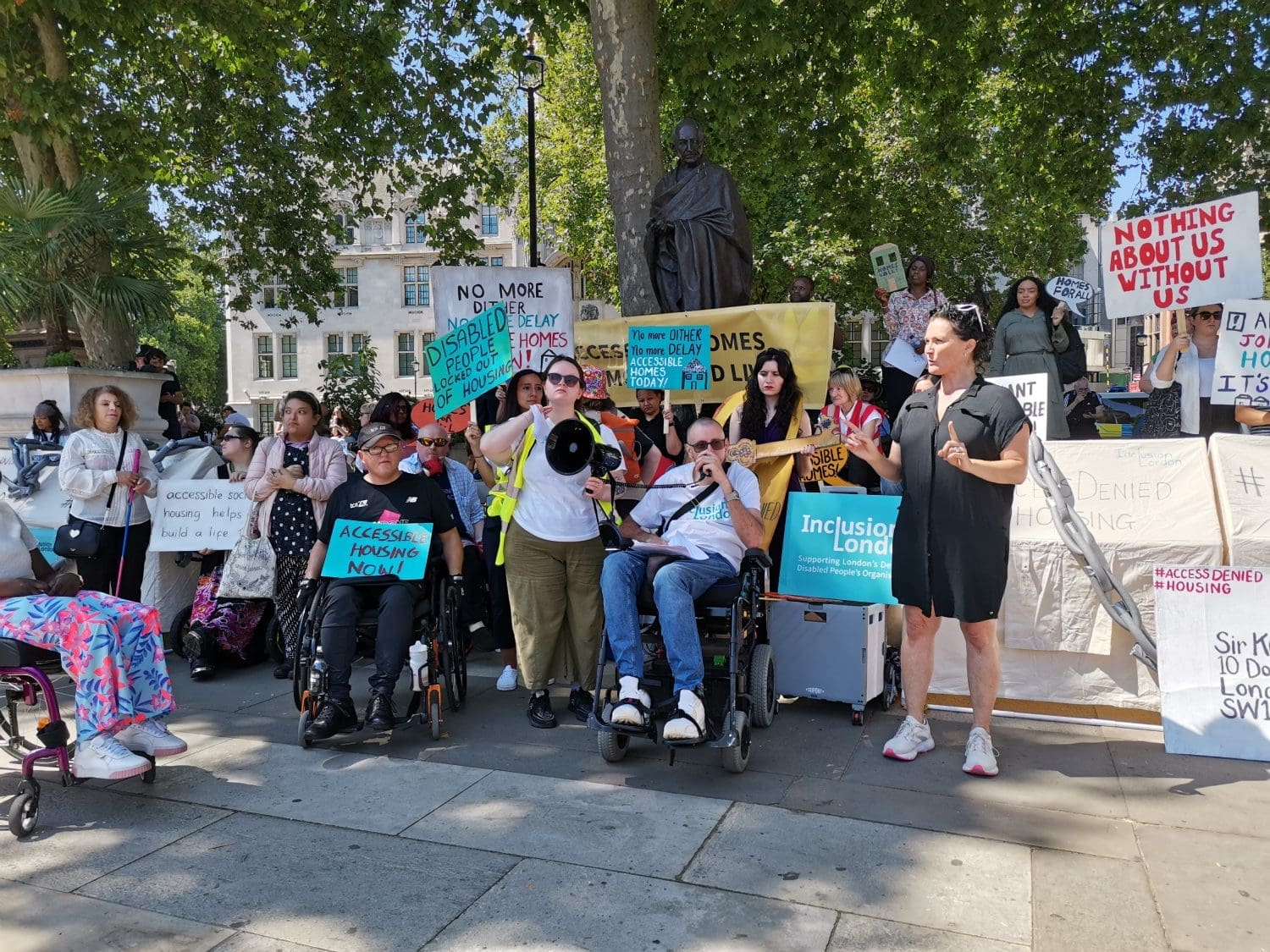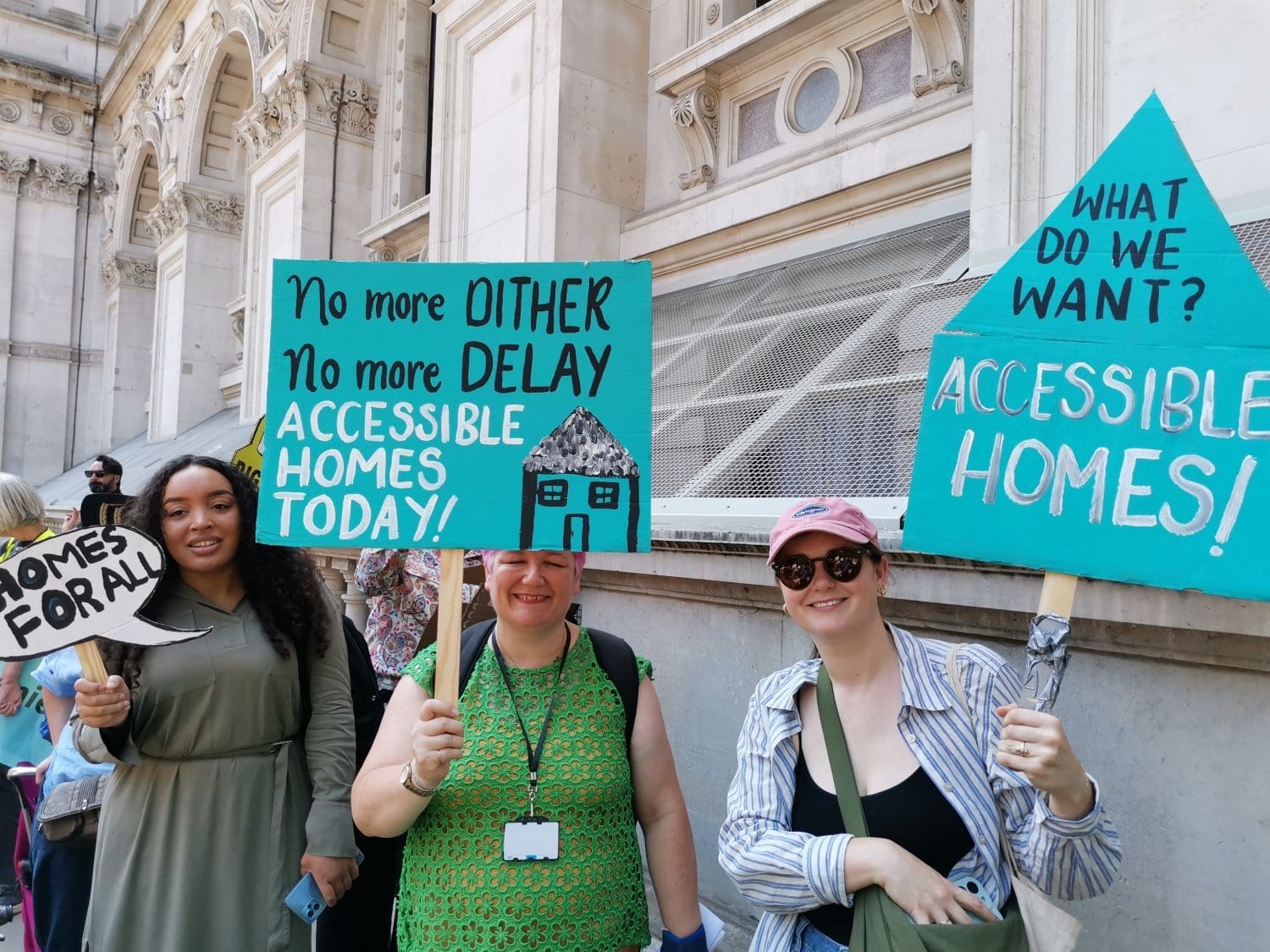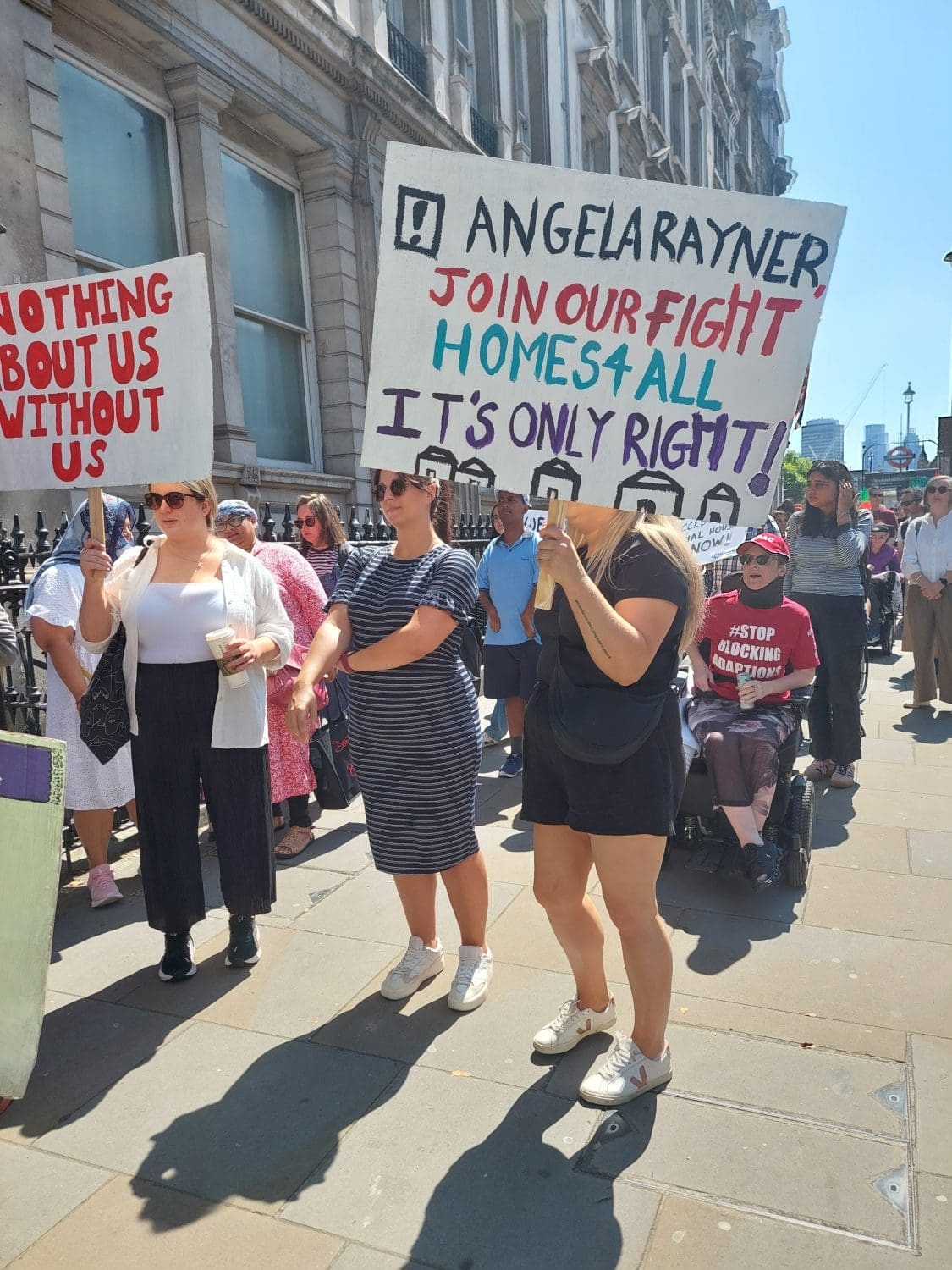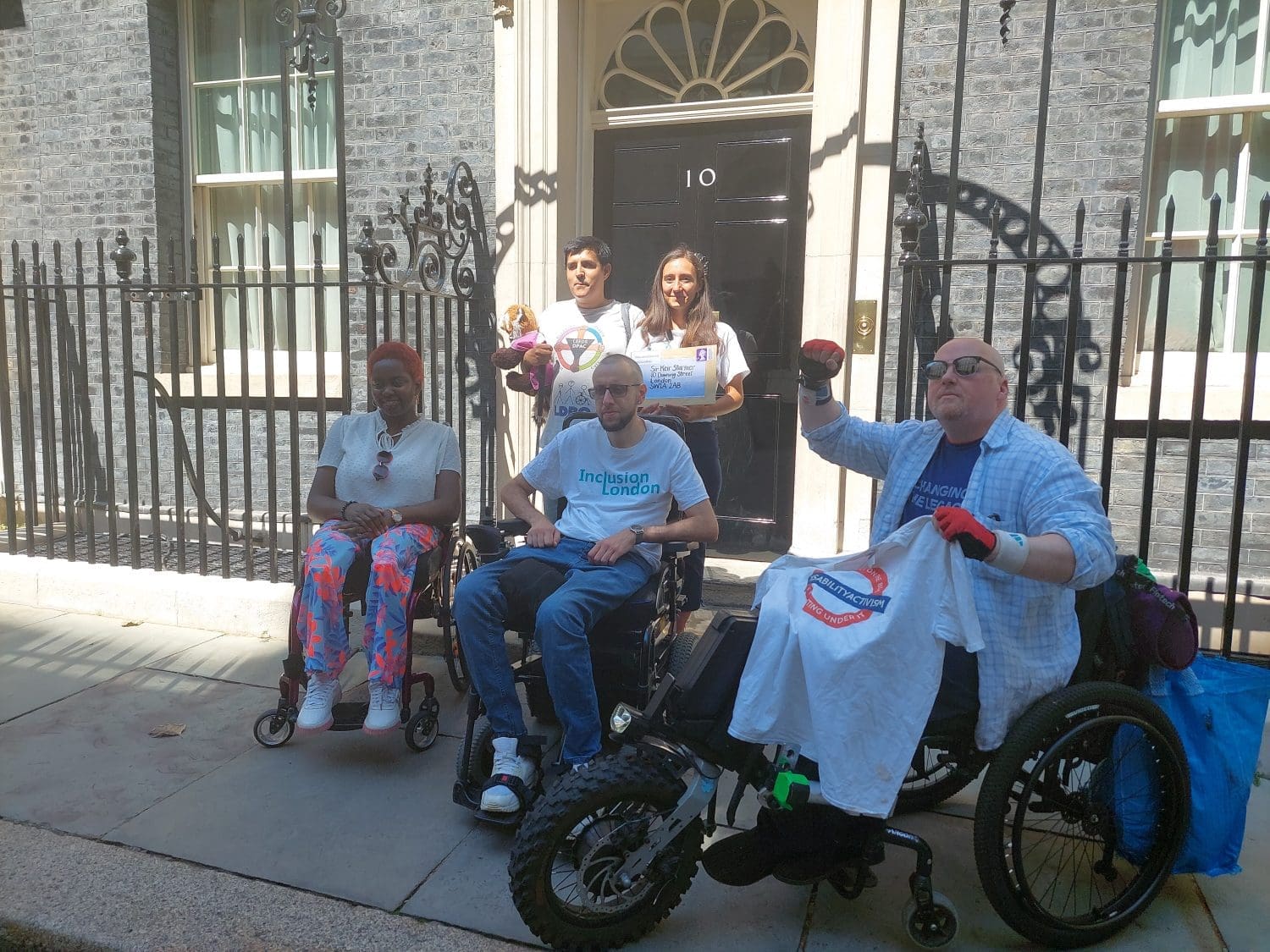This week disabled campaigners and allies marched on parliament to demand the new government pledge to build new accessible housing.
‘No more dither! No more delay!’
The protest, organised by Inclusion London and attended by many disability rights groups and campaigners, started in Parliament Square at 12pm on Monday 29 July and featured speakers with lived experience of inaccessible housing:
There are currently 104,000 disabled people on council waiting lists for accessible and adaptable homes. At the current rate that new accessible houses are being built or become available, it could take a wheelchair user 47 years to get a house that suits their needs.
400,000 wheelchair users are currently living in unsuitable homes and it’s estimated that fewer than one in 10 homes are accessible to wheelchair users.
Not only are many current houses inaccessible and difficult to adapt due to their age, but new homes still aren’t being built to an accessible standard. Many developers are locking disabled people out of new houses by refusing to build homes to even a basic accessible and adaptable level.
Not only are Inclusion London and the other campaigners demanding more accessible housing, but they are also highlighting that it must be affordable – as many disabled people can’t afford to own their own home or pay sky-high rents.
Accessible housing: a shameful lack of action
Laura Vicinanza from Inclusion London told protestors:
Housing is the cornerstone of independent living. Yet, hundreds of thousands of Disabled in this country are living in homes that are inaccessible, unsafe and unaffordable. This is unacceptable.
Chair of Inclusion London Adam Gabsi spoke about how much his adapted house meant to him:
My accessible home improves my quality of life. My accessible home gives me peace of mind. My accessible home gives me the freedom that many don’t have.
He continued:
All new build homes should be safe, affordable and accessible. We would like the new Labour government to tackle this lack of equality.
Disability campaigner Osayuki Igbinoba spoke about her struggles of living in an inaccessible home:
If I’m using my wheelchair, I can’t access the sink in my kitchen or cook independently. The passages are too narrow for me to push myself in my wheelchair freely. This is not just my story, but a reality faced by many.
She said
As disabled people, we demand change and justice. Every disabled person has the right to live independently in a home that is suitable for them.
Failing disabled domestic abuse survivors
The protest also shed important light on how the government’s lack of accessible housing means survivors of domestic abuse struggle to escape their abusers. Angie Airlie from Stay Safe East, a charity which supports disabled survivors of abuse, said:
When the home is no longer a safe place, due to abuse, harassment, or crime, there is often no place for the victim to go. Victims are trapped – unable to escape from the torture of hate crime and/or abuse.
She highlighted that disabled people escaping domestic abuse often end up in local authority temporary accommodation – but that these places are usually unsuitable for disabled people’s needs.
She said:
I often made the argument to the previous government that for disabled people safe accommodation, as defined by the Domestic Abuse Act is almost mythical. It is far more likely that the choice is between unsafe accommodation, or not particularly safe and this isn’t good enough.
The Tories’ lack of action on accessible housing
The protest was held to mark the second anniversary of the previous government’s failed pledge to raise the minimum standards for new-build homes and to ensure all new builds could be adapted to meet disabled people’s needs.
Not only did the previous government turn its back on that pledge, but it also refused to bring in a national mandate of how many new homes had to be wheelchair accessible.
Intent on ensuring the new government doesn’t fail disabled people in the same way, protestors aimed chants and calls at Keir Starmer and Angela Rayner, who is of course in charge of housing and the government’s promise to deliver 1.5 million new homes in the next five years.
Among other things, protestors chanted “Angela Rayner, join our fight! Homes for all, it’s only right!”:
However in her speech to the Commons the next day, Rayner didn’t mention disabled people or accessible housing once.
Will Labour act on the accessible housing crisis?
The event culminated in protesters hand delivering a letter signed by more than 40 DPO’s and allies to Number 10 demanding the prime minister and deputy prime minister commit to “immediate and decisive action” to right the shortage of affordable accessible homes:
Inclusion London and DPO’s demand that the new government:
- Make the M4(2) ‘accessible and adaptable’ standard the minimum requirement for all new build homes, as the previous Government committed to on 29th July 2022.
- Set a minimum target of 10% of new build homes to meet the M4(3) wheelchair user standard.
- Ensure that the majority of accessible homes are built in the social rented sector, as more Disabled people need these kind of homes.
Featured image and additional images via Inclusion London
This post was originally published on Canary.



